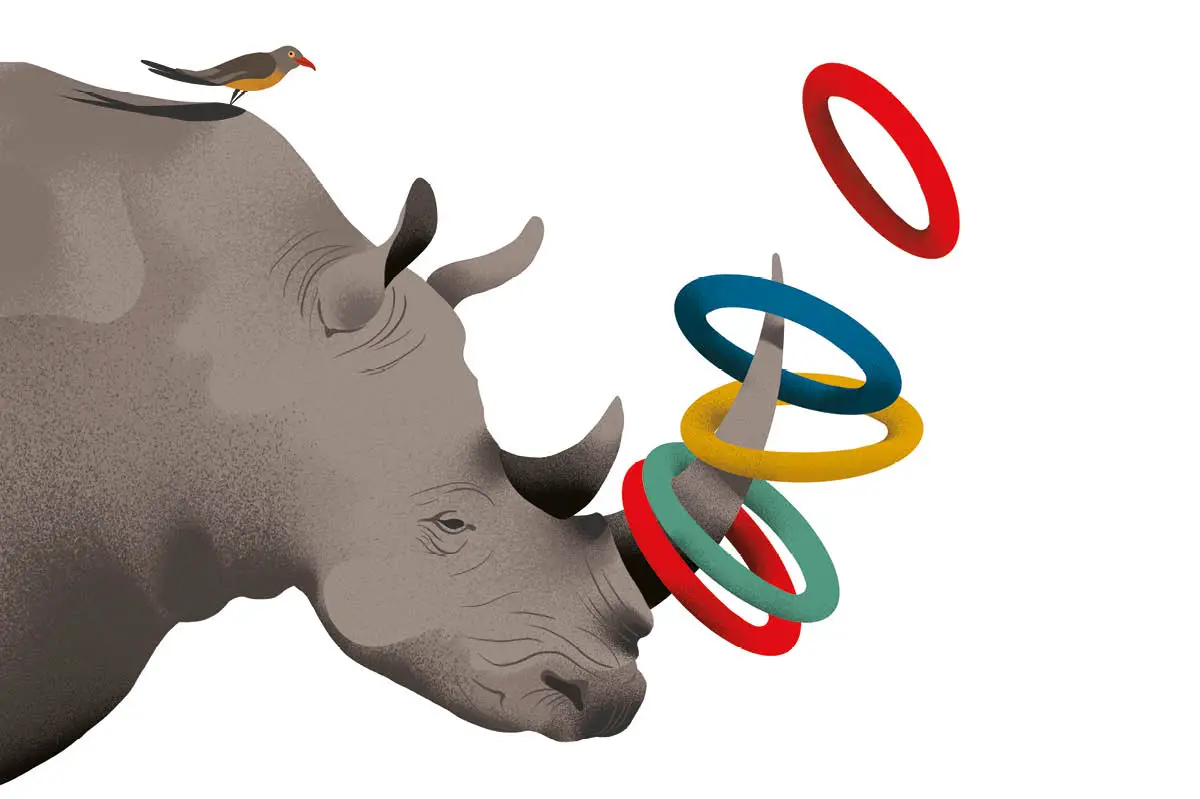After weeks of traveling — first Paris, then Kinshasa I was looking forward to my evening at L’Horloge du Sud in Brussels. Known for its poisson liboké (fish wrapped in banana leaf) and other African specialities, the restaurant is popular with the city’s African diaspora. I’d been invited by a Pan-African think tank to discuss my book on Rwanda.
It was not to be. The day before, I got a call from the Benin journalist due to chair the event. He sounded rattled. The restaurant owner, he said, had been receiving complaints from pro-government Rwandan groups in Brussels, along with threatening emails and anonymous calls from Rwanda itself. His organization was telling the owner to hold fast, but in its history of staging contentious African debates, it had never experienced this level of intimidation.
“Tell him this is just the way dictatorships silence debate,” I said. “Plenty of African governments do it.” “You don’t understand,” said my would-be chair, his voice rising. “They are accusing you of being a well-known négationniste. They are threatening to take the owner to court and say they are ready to wreck the place.”
Ah yes, négationnisme — “genocide denial” — in theory, a crime under Belgian law. As a journalist who in 1994 walked through churches and classrooms in Rwanda where hundreds of men, women and children had been macheted and shot, I have never felt remotely inclined to deny the genocide. I saw the bodies; on a bad day, I can still recall the whiff of putrefaction. Why on earth would I deny an episode upon which I once reported?
But that misses the point. Négationniste has become a term used by the ruling Rwandan Patriotic Front (RPF) to refer to anyone who dares to criticize President Paul Kagame. If I was being surreally libeled, so, routinely, are respectable academics, journalists and — even more grotesquely — members of the Tutsi minority whose families were targeted for elimination by Hutu militiamen and Rwandan army soldiers back in the day. I can only imagine how a Tutsi who lost loved ones in 1994 feels at being slurred in this way for voicing concerns at Kagame’s escalating authoritarianism.
The irony was striking. My book — now out in French translation — focuses on Kagame’s post-genocide track record of “trans-national repression”: the systematic targeting of Rwandan dissidents, journalists and human rights activists who have fled the country — a campaign that extends from hounding on social media to assassination.
With every anonymous phone call and retweet denouncing me as a “tropical Nazi,” the regime in Kigali was actually confirming my book’s central thesis. More bizarrely still, it was attempting to silence a British journalist just when the Home Office’s agreement to send unwanted asylum-seekers to Rwanda was being challenged in the Court of Appeal: clumsy timing, to say the least.
But subtlety has never been Kagame’s or the RPF’s strong point. And when it comes to trying to close down events, they have plenty of form. In April, a book launch planned by my French publisher in Paris was scratched when management at the hotel concerned suddenly decided it could not guarantee security. In South Africa last May, the Institute for Security Studies (ISS) canceled a planned seminar with just eight hours’ notice after complaints from Rwandan officials. The ISS is one of the few independent think tanks on the African continent and its executive director — a man who might be expected to feel strongly about free speech — promised me at the time that the event would be rescheduled once the Rwandans identified someone willing to join me on a platform. Surprise, surprise, no name was ever forthcoming.
And that’s the point. However seemingly intellectually self-assured — and for defiant self-confidence it’s hard to beat Kagame and his ministers — dictatorships are allergic to challenge of any kind. As Professor Filip Reyntjens (a Belgian Rwandan expert also, of course, smeared as a négationniste) marveled on Twitter: “Isn’t it weird that not a single RPF supporter, Rwandan or foreign, dares engage in a contradictory debate? They all chicken out… without exception.”
Predictably, L’Horloge du Sud’s owner decided it was all too much. A triumphant flyer circulated on social media with the words annulé pour cause de négationnisme plastered across my face.
But the Conseil Panafricain de Belgique think tank rose gloriously to the occasion. It promptly announced that the event was being relocated to a hall on the other side of Brussels. That was a decoy address. A three-man posse — Togolese, Congolese and Guinean — politely checked bona fides on the pavement before directing arrivals to the correct location nearby.
Our event was packed — standing room only — and the copies of my book sold out. At the end I asked the chairman, Olivier Dossou, if the minders had turned away any potential saboteurs. “We reckon there were three. They looked Rwandan, they were asking for ‘the well-known négationniste’ and they were extremely insistent. Too insistent.” Next time they staged a Rwandan event, he said, the organizers would be primed.
What’s shocking is how this bullying is carried out, absolutely routinely, on foreign soil, in country after country, by an African regime heavily dependent on foreign aid and international philanthropy. Exploiting EU legislation originally drafted to outlaw racism and xenophobia, Rwanda tries to impose its narrative in any country where it happens to have a diaspora and an embassy. Too often, it succeeds.
If Suella Braverman has her way and the UK Court of Appeal agrees with last year’s judges’ ruling that the Rwanda asylum scheme is legal, hundreds of people fleeing political persecution in countries like Iraq, Afghanistan and Eritrea could in theory soon be headed Rwanda’s way from Britain. The mind boggles.
This article was originally published in The Spectator’s UK magazine. Subscribe to the World edition here.
























